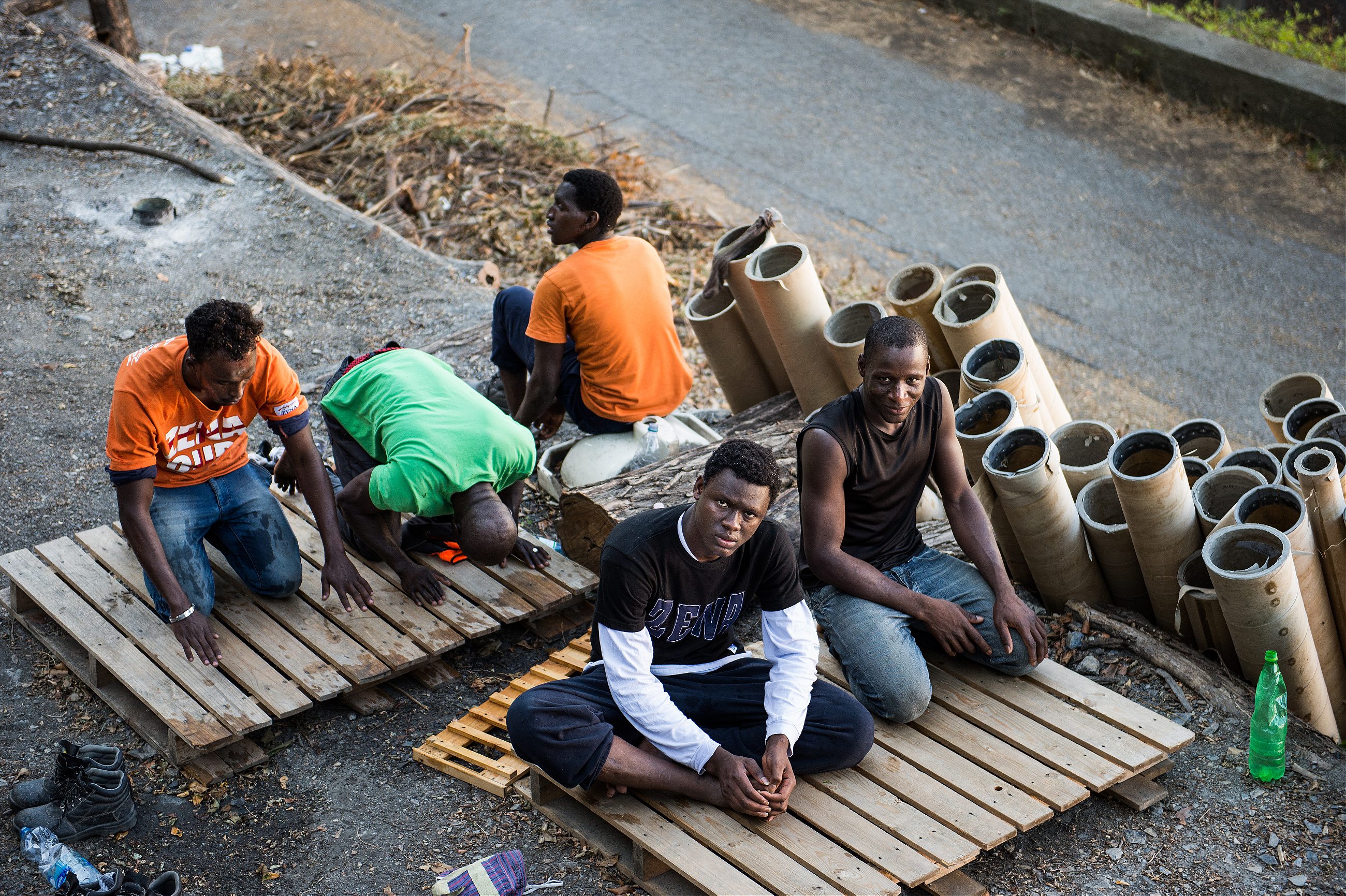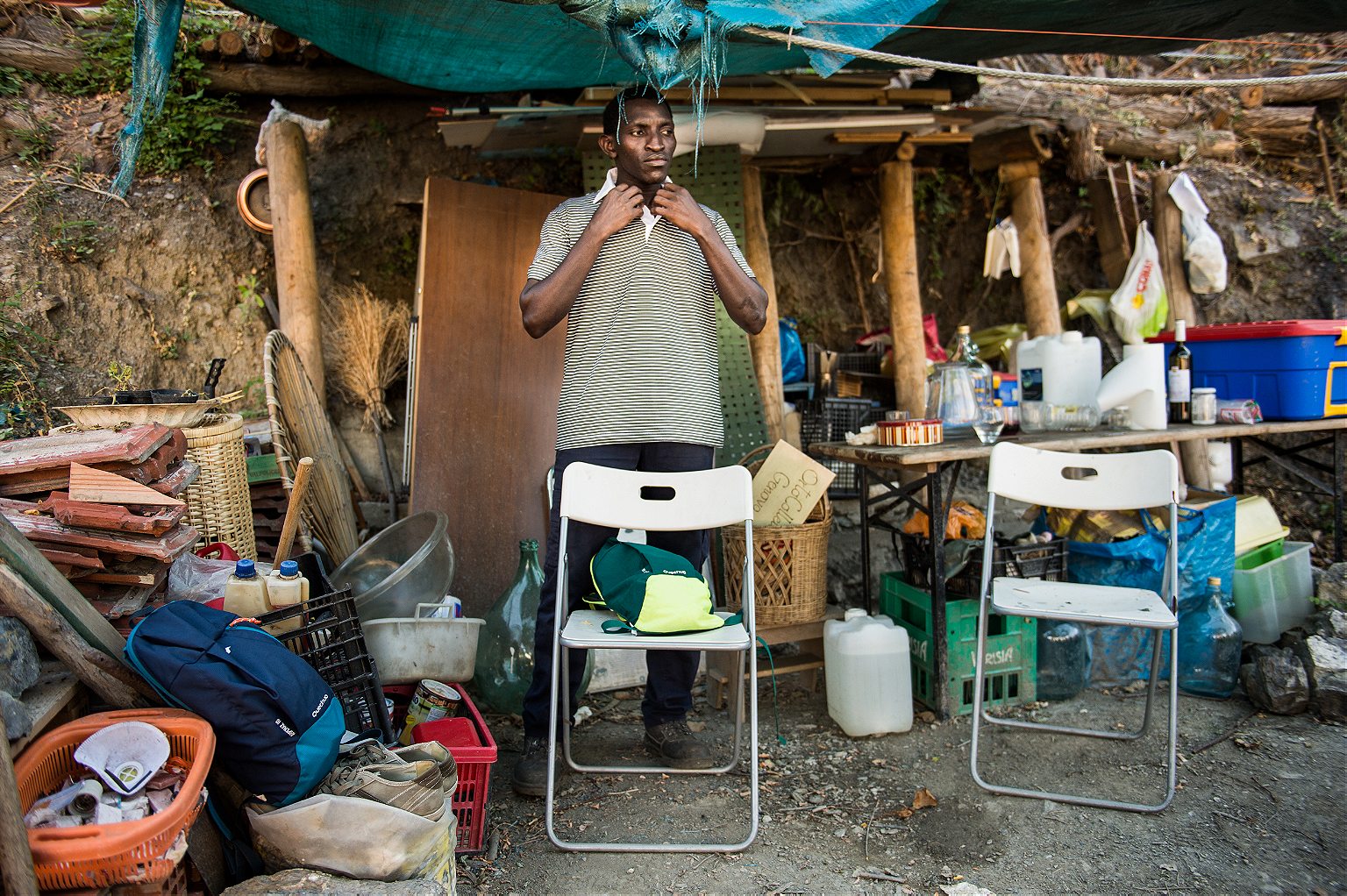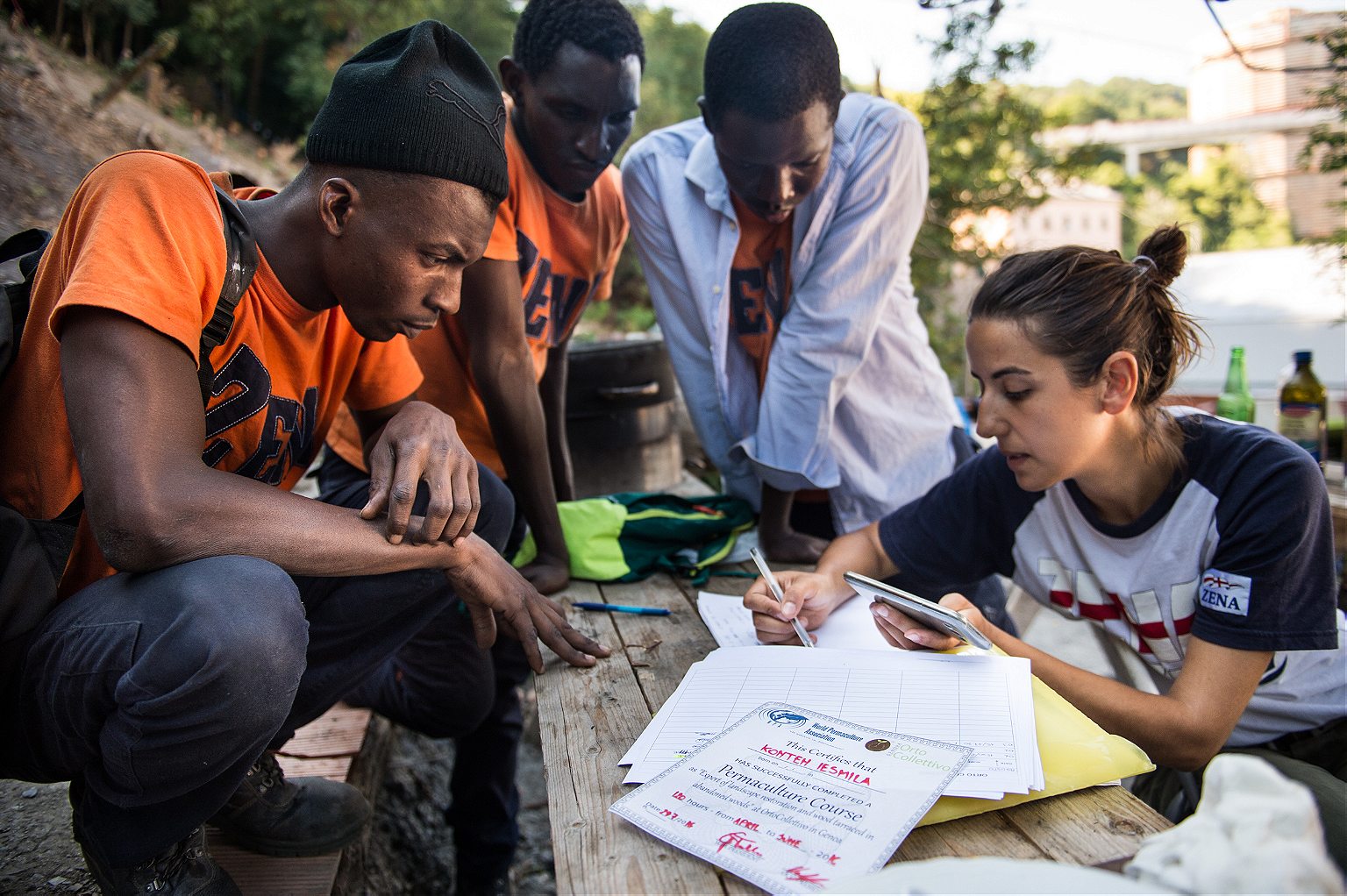In Italy, migrants must wait six months after applying for asylum to work legally. By teaching them farming skills, an organization in Genoa hopes to make them less vulnerable to exploitation.
It’s two o’clock in the afternoon in the Italian city of Genoa. Boubacar and Mamadou are waiting for the bus. The heat is crushing, but the two Senegalese young men are used to worse. After a short ride, they take a second bus to reach Orto Collettivo, the urban vegetable garden they have been working on for the past few weeks.
On the hill of Coronata, the earth becomes bristling and rough. Here, Andrea Pescino and Valentina Grasso teach the basics of permaculture to migrants from sub-Saharan Africa. Their organization, Quattro Valli, currently trains 45 refugees on its farms, providing them with a certificate attesting to their skills in order to help them find paid work in Italy.
Boubacar slips into his safety boots, greeting Madiba, Ismaila, and Gift. Together with nine other young men, they are setting up terraces on the steep terrain, cutting down invasive weeds, and removing the area’s acacia trees. After their 120-hour course is complete, four of them will help teach another group of 15 migrants.
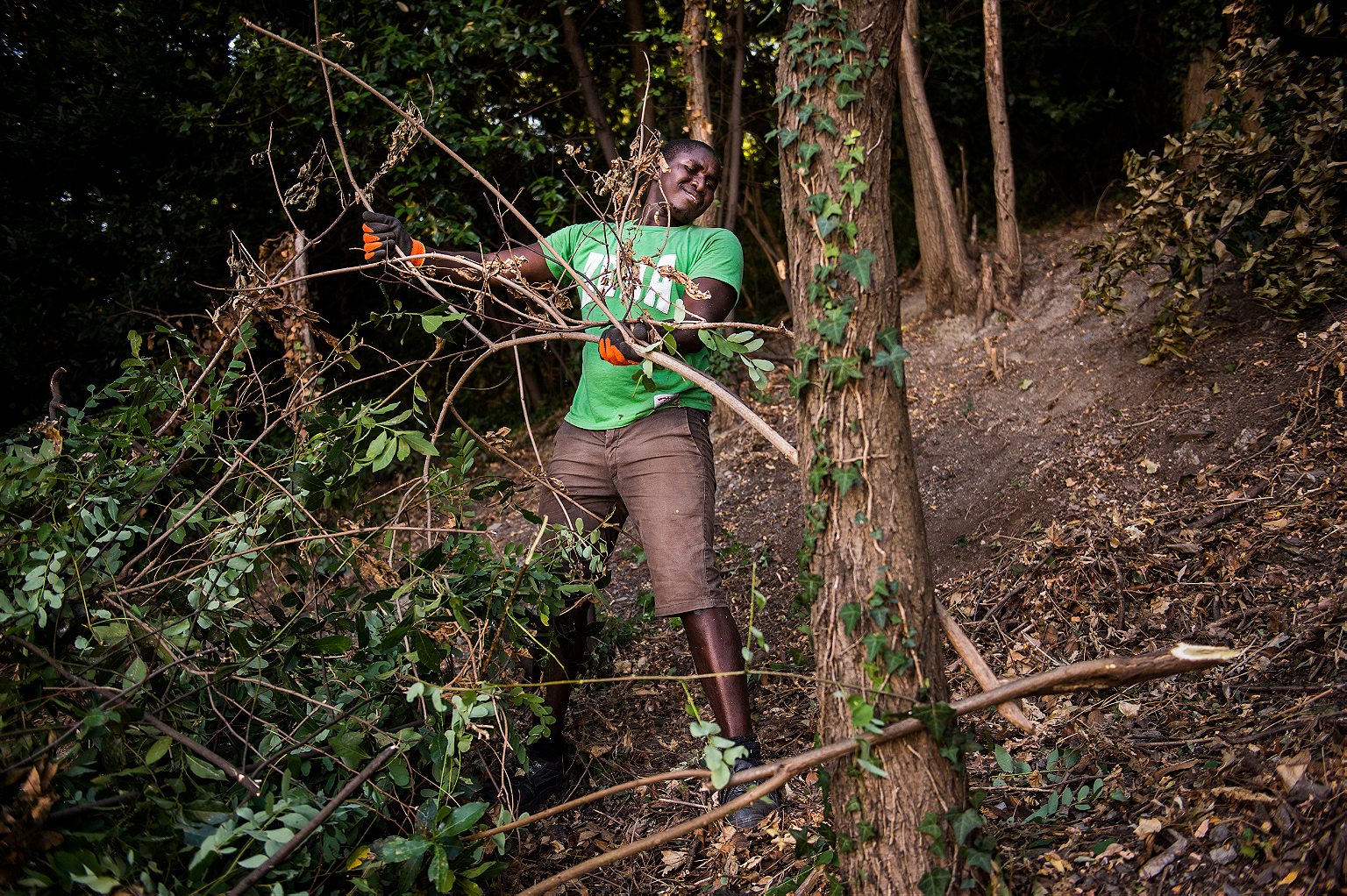
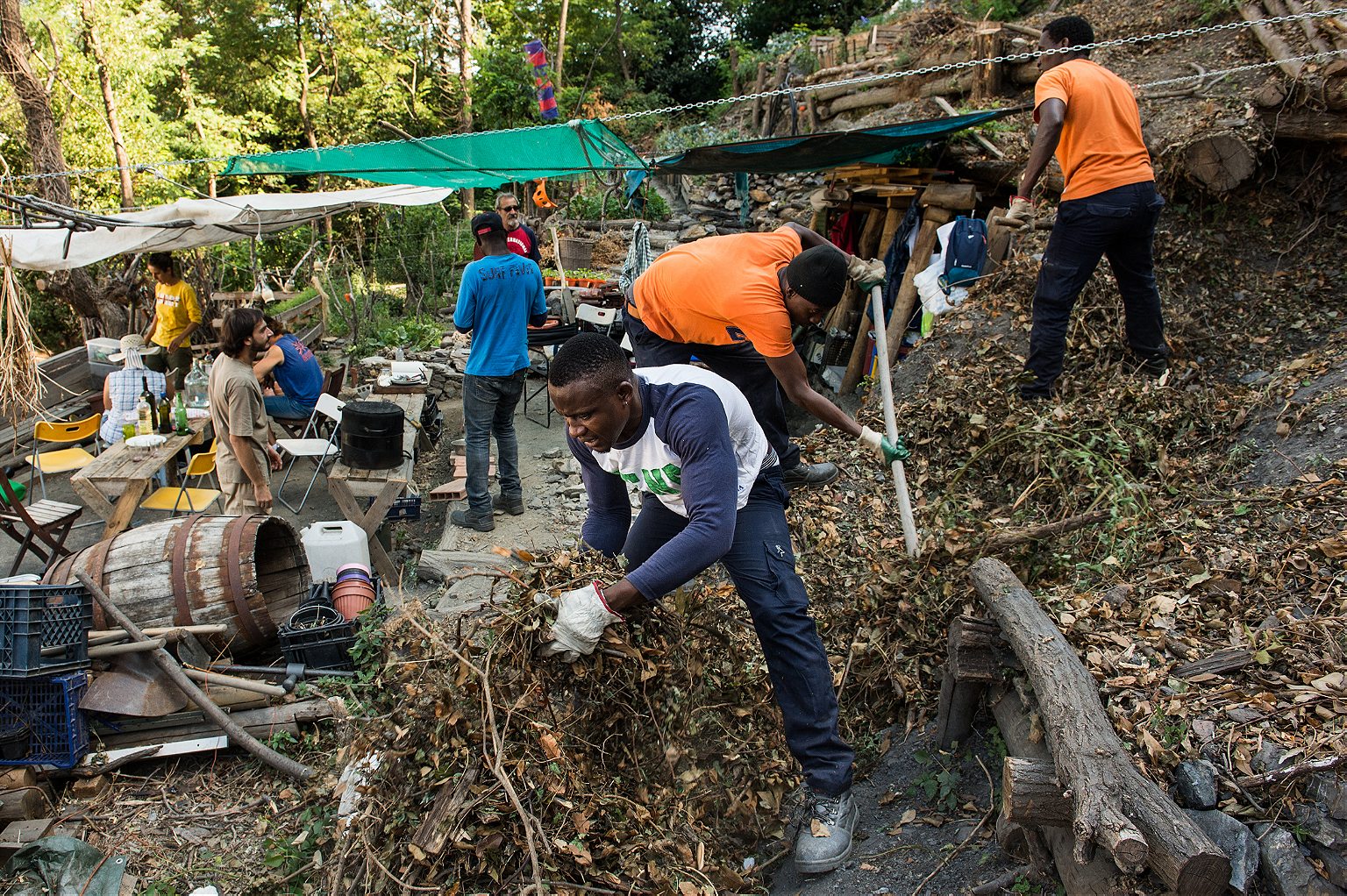
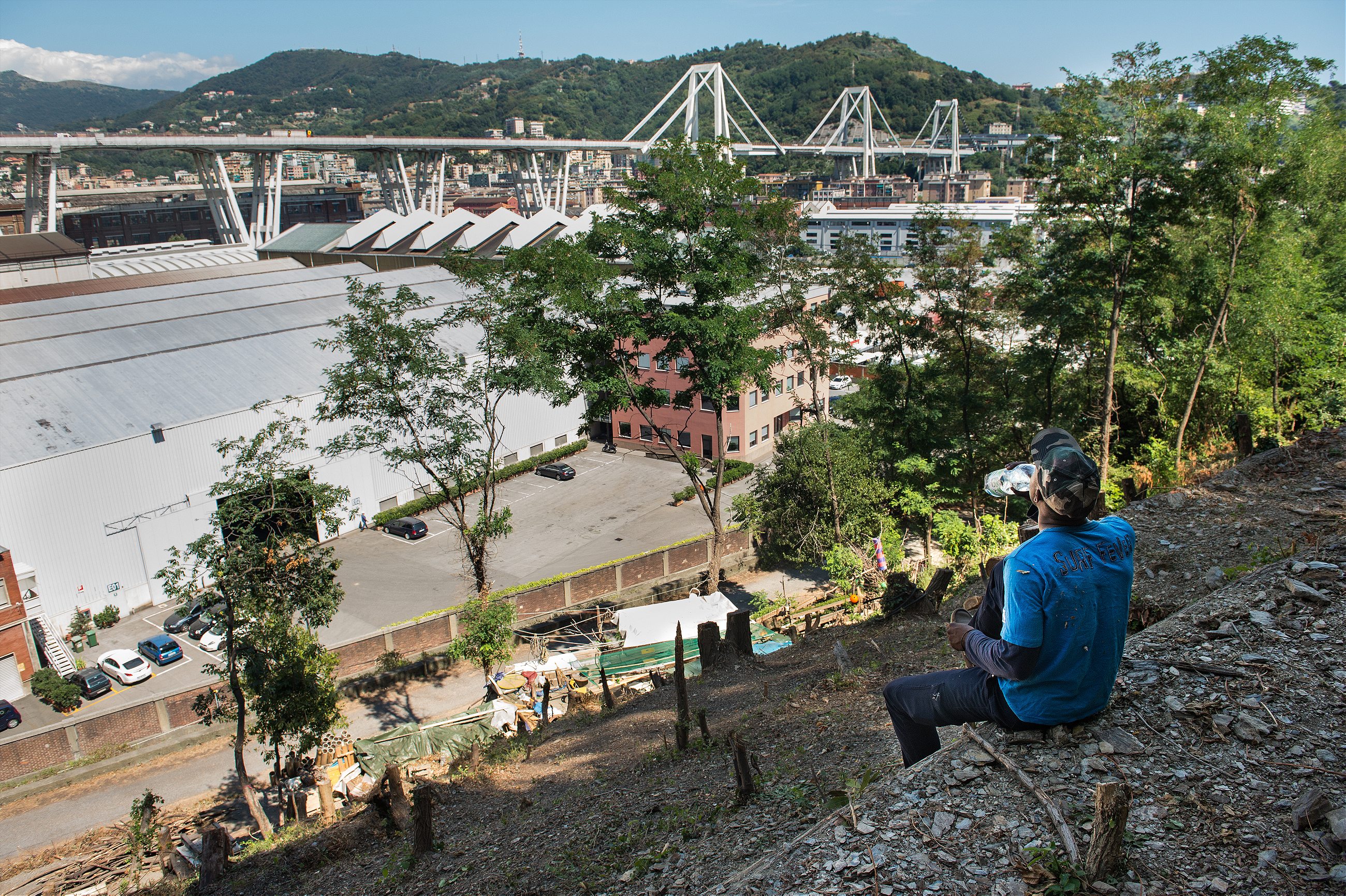
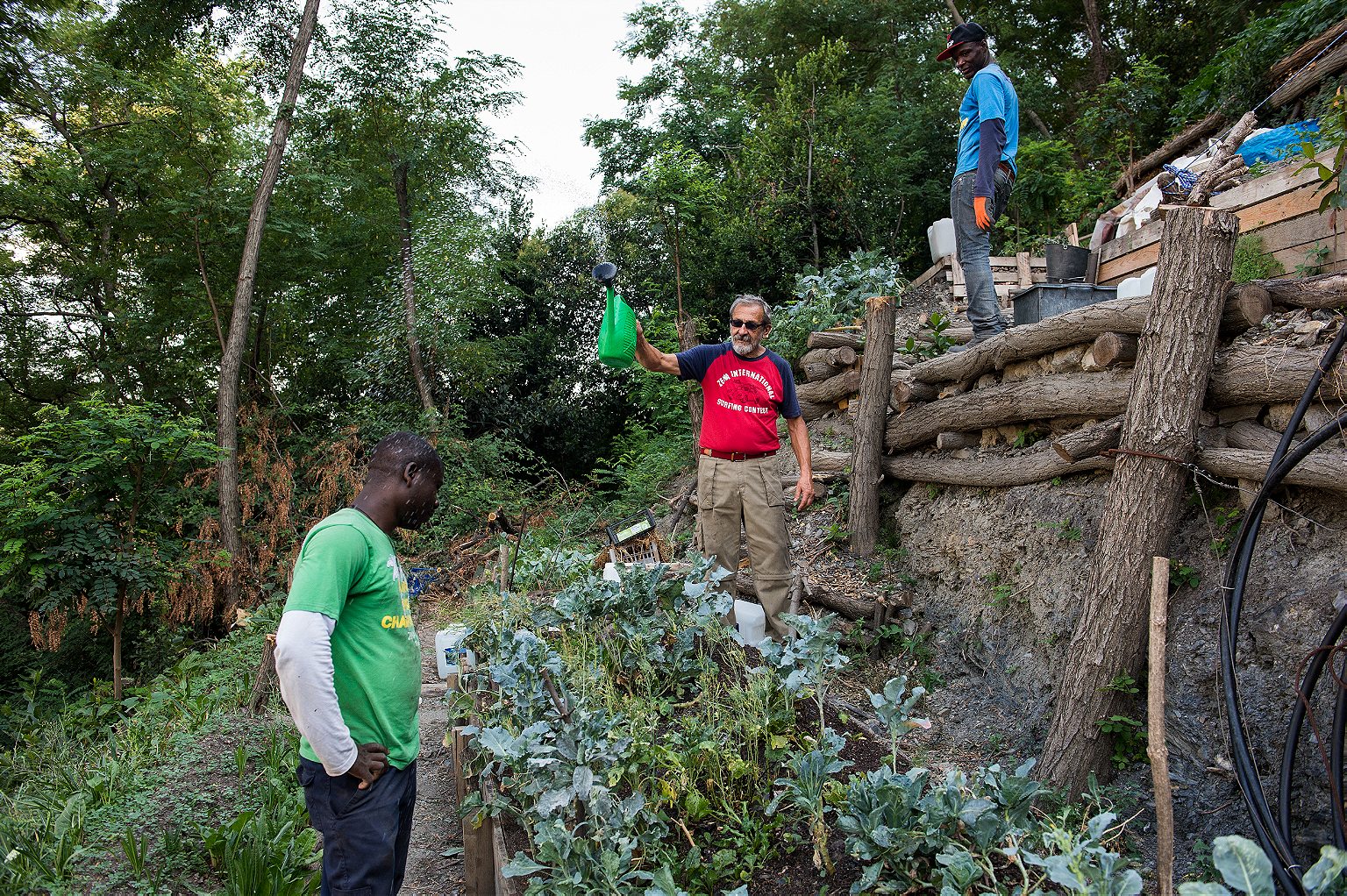
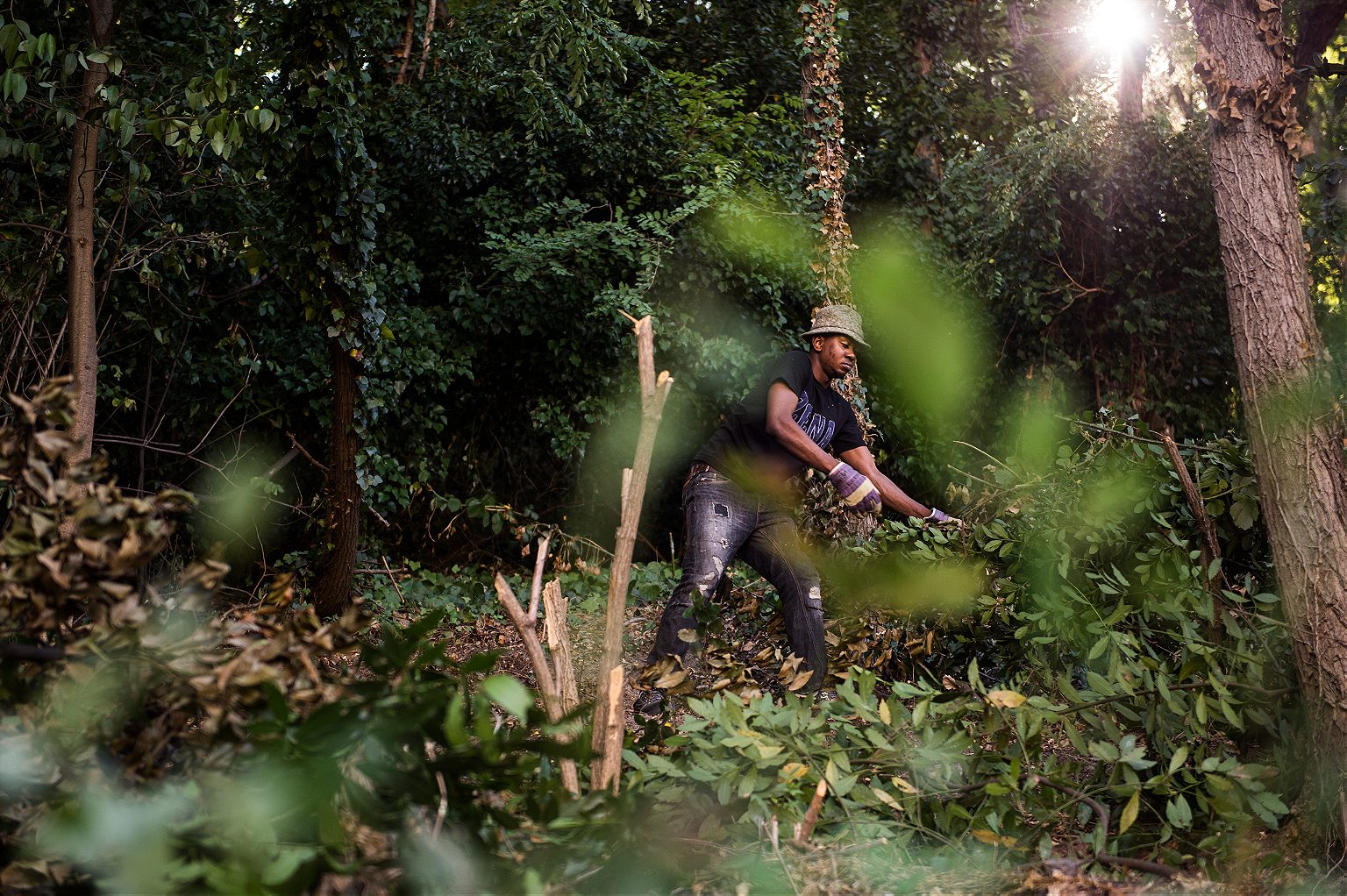
This week, a U.N. official told La Stampa that at least 235,000 migrants and refugees were currently waiting to cross the Mediterranean into Italy. Geography has put the country at the forefront of Europe’s migrant crisis; more than 400,000 people have arrived since the start of 2014. In legal limbo, migrants must wait six months after applying for asylum to work legally. This makes them extremely vulnerable to exploitation; these young men are hoping that their farming skills will provide them with an advantage in the race to find stable employment.
But chances for that are waning. The humanitarian group Doctors for Human Rights said that Italy had turned down more than 60 percent of asylum requests in the first eight months of this year. Many will have to continue their journey north, hoping for a better future elsewhere. —Luisa Perona
